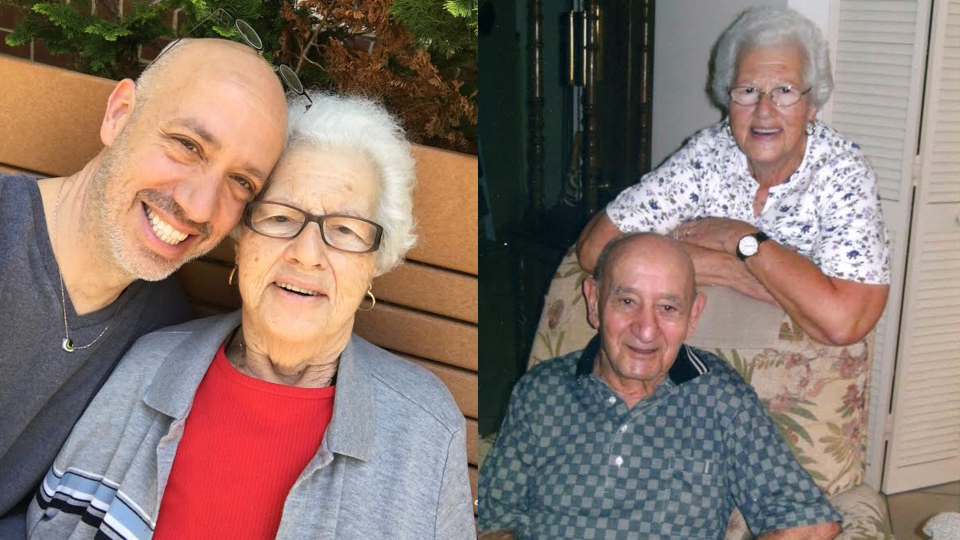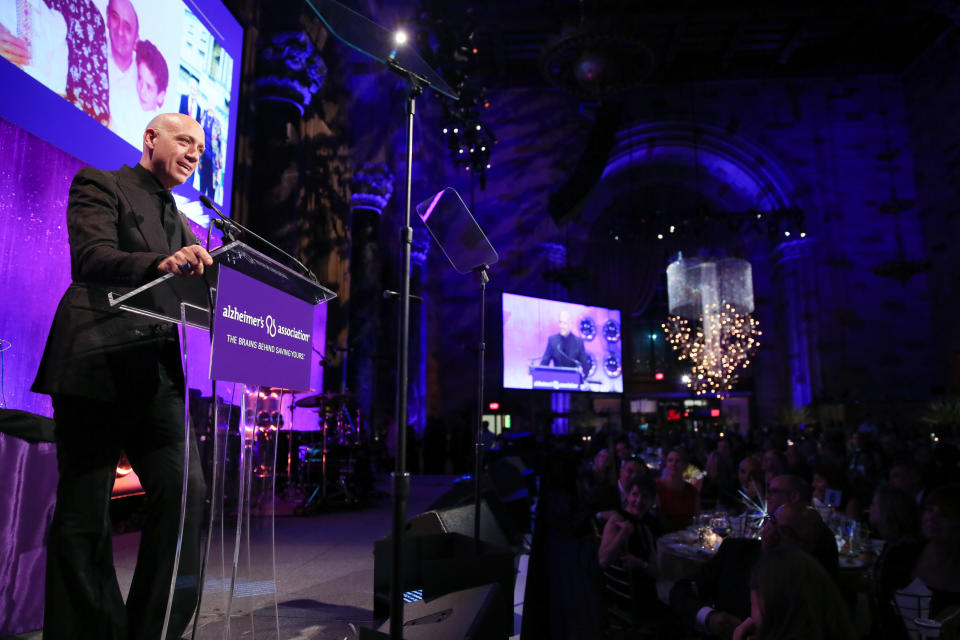Robert Verdi takes a stand against the thing he fears most in life: Alzheimer's disease
Style expert and TV personality Robert Verdi’s biggest fear is that one day he’ll fall victim to what an estimated 5.7 million Americans suffer from: Alzheimer’s disease. For the last 13 years, Verdi has dealt with the illness on a profound and personal level when not one, but both of his parents were diagnosed with it.
“My father was diagnosed in 2005; he died in 2010,” he tells Yahoo Lifestyle. “My mother had seven great years after my father’s death. Then a dark day came.”
Verdi recalls that one year he received a phone call from his sister saying she and her four children had each received four to six Easter cards from their mother, Maria. Soon after, Verdi’s mother started exhibiting more prominent signs of forgetfulness and confusion.

Verdi’s worst fears were realized when he discovered a multitude of reminders displayed around his mother’s house with his name, phone number, and his relationship to her. In addition, unbeknownst to him or his sister, Maria had been hoarding food for years because she would repeatedly go grocery shopping and then forget what she was buying.
“I’ve learned that it’s called compensating,” Verdi says. “People who have Alzheimer’s are covering up. They are aware that things aren’t perfect, and they come up with ways to solve those problems.”
Verdi and his sister found themselves alongside the 16.1 million Americans who provide unpaid care for an Alzheimer’s patient, a role that his mother played valiantly for years before his father’s death.
“[Alzheimer’s] is an incredibly cruel disease. I watched my father die in slow motion, and now I’m watching my mother die in slow motion.”
“My mother’s version of Alzheimer’s disease was very different from my father’s,” Verdi says. “My father wasn’t able to do anything independently. She was lifting him and changing him and feeding him and showering him. [My mother] can still have conversations. We try to give her all the tools to stay as independent as she possibly can.”
After much consideration, Verdi moved his mother to an assisted living facility that specializes in cognitive disabilities, where she can maintain a semblance of independence and he can visit her several times a week.
Although his visits are frequent, Maria’s memory has progressed to the point where she does not remember Verdi’s visits or that she lives in an assisted living facility. “Now I sit with her and try to get her to tell me stories,” he jokes. One thing he advises caregivers: “Move through as gently and easily as you can, agreeing with them, not asking questions.”
Despite the crippling emotional and financial effects Alzheimer’s disease can have not only on the patient but also on the caregiver, Verdi brings a lot of heart and humor to his situation. And he takes comfort in the fact that he doesn’t have to fight this battle alone.

Verdi has joined forces with the Alzheimer’s Association, the largest nonprofit funder of Alzheimer’s research and an organization Verdi says is an invaluable resource for caregivers.
“[Alzheimer’s] is an incredibly cruel disease. I watched my father die in slow motion, and now I’m watching my mother die in slow motion,” Verdi says. “I hope to use whatever platform I’ve developed to enlighten people about this disease and bring awareness to it.”
June is Alzheimer’s & Brain Awareness month. For more information, visit the Alzheimer’s Association. Yahoo Lifestyle would like to thank Brandywine Living at Mountain Ridge in Watchung, N.J., for allowing us to film.
Read more from Yahoo Lifestyle:
Gene Wilder’s widow reflects on his Alzheimer’s battle in powerful essay
Being sleepy during the day could be a warning sign of Alzheimer’s
Scientists are growing mini human brains to better study neurological diseases
Follow us on Instagram, Facebook, and Twitter for nonstop inspiration delivered fresh to your feed, every day.
